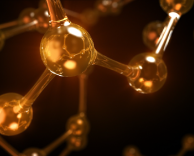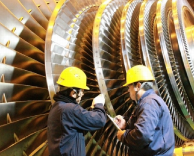Turbine Oil Standards: Key Guidelines for Optimal Performance
Introduction
Turbine oils are essential for the efficient and long-lasting operation of turbines. Such oils are developed to meet certain conditions such as thermal stability, the suppression of rust and corrosion, and high oxidation resistance. To maintain the standards of quality and performance of turbine oils, numerous organizations are formulating standards that are acceptable throughout the world. A summary of these standards, their parameters, as well as industrial usage are presented in this article.
Importance of Turbine Oil Standards
For the safe operation of turbines, it is important to have Turbine Oil Standards that ensure:
- Performance Consistency: Performance properties such as viscosity, oxidation stability, and thermal tolerance are a part of the specification that maximize turbine performance.
- Equipment Life: Premium turbine oils minimize wear and have a positive impact on the life of equipment.
- Compatibility: Oils blend easily with other brands and can be used without any fear of interference with products or their functionality.
- Regulatory requirements: Industries are required to comply with certain standards to comply with environmental and other operational regulations.
Key Turbine Oil Standards
1. BSI (British Standards) - BS 489:1999
BSI BS 489:1999 is the British standard for turbine oils. It defines requirements on:
- Resistant to Heat: So the oil does not break down when exposed to high temperatures.
- Resistance to Oxidation: Protects against the formation of sludge and varnish.
- Separation of water: It provides excellent demulsibility to avoid water contamination.
2. DIN (Deutsches Institut für Normung) – DIN 51515-1, 51515-2
The DIN 51515 is available in two parts:
DIN 51515-1: Concerned with oils used in steam turbines and low thermal stress situations. Important properties are the oxidation stability and emulsion protection.
DIN 51515-2: For high-temperature turbines, ensuring thermal stability and low volatility.
This reason- this standard is commonly implemented in Europe, which focuses on high thermal performance at critical system operating temperatures.
3. ABB Group – ABB G12106
This ABB G12106 describes a specification for ultra-clean turbine oils, namely:
- One-Time Use: Improved oxidation resistance increases the time between oil changes.
- Preventing Rust and Oxidation: can inhibit rust and precipitation.
- Ultra-Clean Standards: Provides strict control of contaminants to safeguard sensitive turbine parts.
4. ASTM International – ASTM D4304
The characteristics of mineral and synthetic gas turbine oils are described in ASTM D4304. Key aspects include:
- Compatibility: It assures that oils are compatible with the installed machines.
- Performance Standards: Including properties such as viscosity, foam resistance, deposit control, and thermal stability.
- Maintenance Schedules: Recommends field maintenance to maintain serviceability.
5. GE Futures (General Electric) – GEK-32568
GE's GEK-32568 specifications are for lubricating oils suitable for high temperature service in gas turbines, such as:
- High Temp Resistance: Ideal for bearing ambients over 500°F (260°C).
- Oxidation Stability: Guards against harmful sludge deposits and also defends against thermal and oxidative breakdown.
- Prevents Rust: Guards against the formation of rust on vital turbine parts.
For More Information About Minimac Products -Click Here
Emerging Trends in Turbine Oil Standards
Latest developments in the energy sector have technology impacting turbine oil standards. Some emerging trends include:
- Sustainability: Development of biodegradable and environmentally-friendly turbine oils to minimize environmental impact.
- Online Digital Monitoring: Real-time oil condition and performance monitoring with sensor integration.
- Advanced Additives: Boosted Formulations to Protect your Engine from harmful deposits and wear.
- Global Harmonization: Attempts to standardize regional standards for improved uniformity and intercompatibility.
Appropriate testing techniques, such as BDV Testing and efficient filtration systems like TOFS (Transformer Oil Filtration Systems), become vital to keep the quality standards of turbine oil in sync with these latest trends.
Conclusion
The BSI BS 489, DIN 51515, ASTM D4304, etc, are the turbine oil standards which are critical for the turbine's efficiency, reliability, and life. By following these guidelines, sectors can achieve improved performance, reduced maintenance costs, and work towards a more efficient tomorrow. Keeping informed about the latest trends and developments in turbine oil chemistry is critical to staying competitive in today's fast-paced industrial environment.
Learn more about our services and industry insights by visiting our official LinkedIn page: Minimac Systems





